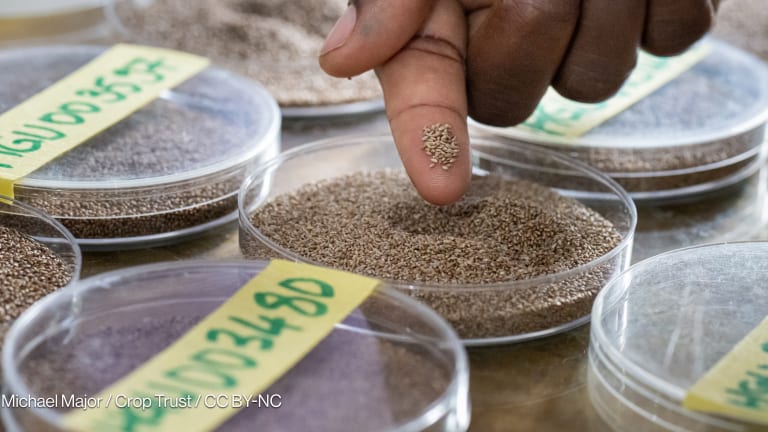From threats of famine in Somalia caused by drought, to hunger in Syria caused by war, the development community is increasingly faced with the enormous challenge of addressing global food insecurity and political instability around the world, especially in fragile states.
A new report, “Recurring Storms: Food Insecurity, Political Instability, and Conflict,” launched at Center for Strategic and International Studies takes a comprehensive look at the different levers that push societies into a state of crisis by highlighting trends in food insecurity around the world and their connection to political instability.
It drew examples from the ongoing crises in northeastern Nigeria, Syria and Afghanistan to make different recommendations, including the need for a high-level political commitment and the mobilization of more global investment in food security. Emmy Simmons — senior adviser of the Global Food Security Project at CSIS and author of the report — highlighted the L'Aquila Food Security Initiative, which was established to address the 2008 food price crisis, as a model that could mobilize international support and investments to address the current crisis and the future anticipated ones.








